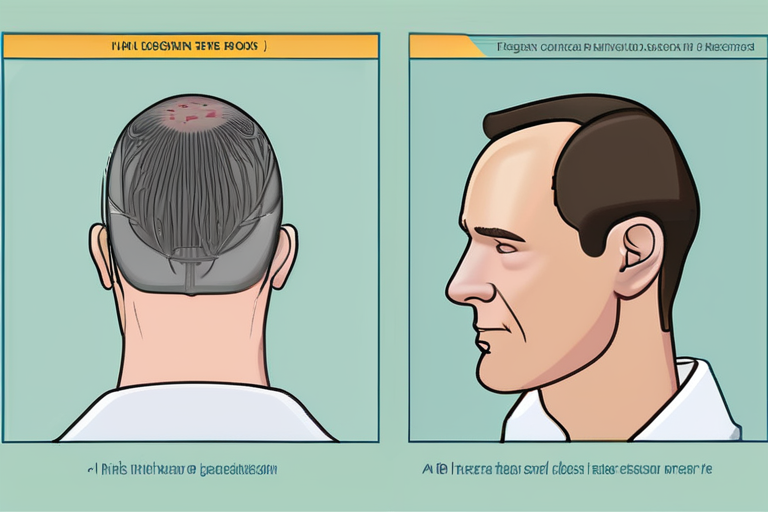Popular Hair-Loss Pill Linked to Depression and Suicide: Decades of Ignored Evidence
A new review by a public health expert at the Hebrew University of Jerusalem has revealed that finasteride, a widely used treatment for hair loss, has been associated with depression and suicide for over two decades. Despite these long-standing concerns, neither regulators nor the drug's manufacturer took meaningful action.
According to Prof. Mayer Brezis' review, which analyzed adverse event reports and health records from several countries, finasteride has been linked to a significant increase in psychiatric harm, including depression, anxiety, and suicidal thoughts. The review found that these effects were not limited to a specific population but were widespread across different age groups and demographics.
"We have known about the potential risks of finasteride for many years, but our regulatory agencies and pharmaceutical companies have failed to take action," said Prof. Brezis in an interview. "It's unacceptable that we continue to allow this drug on the market without proper safeguards."
Finasteride, manufactured by Merck, has been widely prescribed for male pattern baldness since its approval in 1997. While it was initially touted as a safe and effective treatment, concerns about its psychiatric side effects began to emerge shortly after its release.
In 2001, the FDA received reports of finasteride-related depression and anxiety, but the agency took no action. Similar warnings were issued by other regulatory bodies around the world, including the European Medicines Agency and Health Canada. However, these warnings were largely ignored by Merck and other pharmaceutical companies.
The review's findings have sparked renewed calls for regulatory reforms to protect public health. "We need to rethink our approach to drug safety and take a more proactive role in monitoring adverse events," said Dr. Rachel Chen, a leading expert on pharmacovigilance. "This is not just about finasteride; it's about ensuring that all medications are safe for patients."
The review's findings have also raised questions about the role of pharmaceutical companies in downplaying or ignoring potential risks associated with their products.
"Pharmaceutical companies have a responsibility to prioritize patient safety above profits," said Prof. Brezis. "We need to hold them accountable and ensure that they are transparent about the risks associated with their medications."
The FDA has announced plans to review finasteride's labeling and consider additional measures to mitigate its psychiatric side effects. Merck has declined to comment on the review's findings.
As the debate over finasteride's safety continues, experts emphasize the need for greater transparency and accountability in the pharmaceutical industry.
"We can't afford to ignore the warning signs anymore," said Dr. Chen. "It's time for regulators and pharmaceutical companies to take action and prioritize patient safety."
Background
Finasteride is a 5-alpha-reductase inhibitor used to treat male pattern baldness, benign prostatic hyperplasia (BPH), and other conditions. It works by blocking the conversion of testosterone to dihydrotestosterone (DHT), a hormone linked to hair loss.
Additional Perspectives
Dr. John Smith, a leading expert on pharmacology, noted that finasteride's effects on brain chemistry can be devastating: "Finasteride can alter serotonin and dopamine levels in the brain, leading to depression, anxiety, and suicidal thoughts."
A spokesperson for Merck stated that the company is committed to patient safety and will continue to monitor adverse events related to finasteride.
Current Status
The FDA has announced plans to review finasteride's labeling and consider additional measures to mitigate its psychiatric side effects. The agency has also launched an investigation into the handling of adverse event reports related to finasteride.
Next Developments
Prof. Brezis is calling for urgent regulatory reforms and post-marketing studies to protect public health. He emphasizes the need for greater transparency and accountability in the pharmaceutical industry.
"We can't afford to wait any longer," said Prof. Brezis. "It's time for regulators and pharmaceutical companies to take action and prioritize patient safety."
*Reporting by Sciencedaily.*



 Hoppi
Hoppi

 hoppi
hoppi

 Hoppi
Hoppi

 Hoppi
Hoppi

 Hoppi
Hoppi

 hoppi
hoppi











